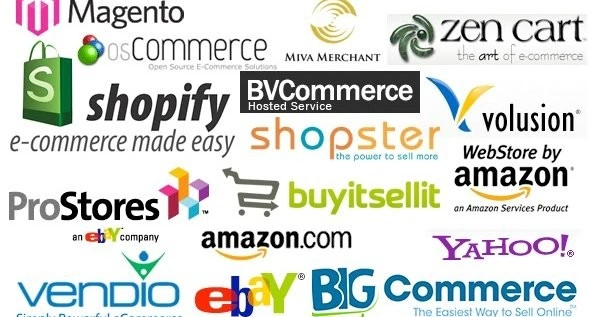
In today’s digital age, launching an e-commerce business has become an essential strategy for entrepreneurs and established companies alike. However, selecting the right e-commerce platform can be a daunting task. With numerous options available, each offering distinct features and benefits, making an informed decision is crucial for the success and scalability of your business. This guide will walk you through the key considerations to help you choose the best e-commerce platform for your needs.
- Understand Your Business Requirements
- What is your target audience, and how do they prefer to shop?
- How many products do you plan to sell?
- Will your business require global shipping or support for multiple languages?
- What is your budget for setting up and maintaining the platform?
2. Scalability and Growth Potential
Your e-commerce platform should grow with your business. If you start with a basic setup but plan to expand your product catalog or enter international markets, ensure the platform can handle such growth. Look for features like:
- Flexible hosting plans
- Integration with third-party tools
- Scalability for increased traffic and transactions
3. Ease of Use
For businesses with limited technical expertise, a platform that offers intuitive design tools and minimal coding requirements is ideal. Drag-and-drop builders, pre-designed templates, and straightforward customization options can save time and effort. Shopify, Wix, and Squarespace are popular choices for ease of use.
4. Payment Options and Security
Offering diverse payment options enhances the customer experience and boosts conversion rates. Look for a platform that supports:
- Credit and debit cards
- Digital wallets (e.g., PayPal, Apple Pay)
- Regional payment methods
5. SEO and Marketing Features
A good e-commerce platform should help you attract and retain customers through robust marketing tools. Key features to consider include:
- SEO-friendly URLs and metadata
- Integration with email marketing tools
- Social media sharing capabilities
- Discount codes and loyalty programs
6. Mobile Responsiveness
With the majority of online shopping conducted on mobile devices, a mobile-responsive platform is non-negotiable. Ensure the platform offers:
- Responsive themes and templates
- Mobile-friendly checkout processes
- Compatibility with mobile apps for managing your store on the go
As your business grows, you may need additional tools for inventory management, customer support, or advanced analytics. Choose a platform that integrates seamlessly with popular third-party apps and services. Platforms like BigCommerce and Shopify have extensive app marketplaces to enhance functionality.
8. Customer Support
Reliable customer support is essential, especially for beginners. Look for platforms that offer:
- 24/7 live chat or phone support
- Comprehensive knowledge bases and tutorials
- Active community forums
9. Pricing and Costs
While budgeting for an e-commerce platform, consider both upfront and ongoing costs. These may include:
- Monthly subscription fees
- Transaction fees
- Costs for premium templates or apps
10. Popular E-commerce Platforms
Here’s a quick comparison of some popular platforms:
| Platform | Best For | Key Features | Pricing |
| Shopify | Beginners and scalability | User-friendly, extensive app store | Starts at $29/month |
| WooCommerce | Customization and SEO | Open-source, WordPress integration | Varies based on hosting |
| BigCommerce | Growing businesses | Advanced tools, multi-channel selling | Starts at $29.95/month |
| Wix | Small stores | Drag-and-drop builder, affordable | Starts at $27/month |
| Magento | Large enterprises | Highly customizable, powerful features | Free (open-source) or Enterprise version |
Choosing the best e-commerce platform depends on your unique business requirements, technical expertise, and long-term goals. By considering factors like scalability, ease of use, payment options, and marketing features, you can select a platform that sets your business up for success. Remember, your choice of platform is an investment in your business’s future, so take the time to evaluate all options thoroughly.
